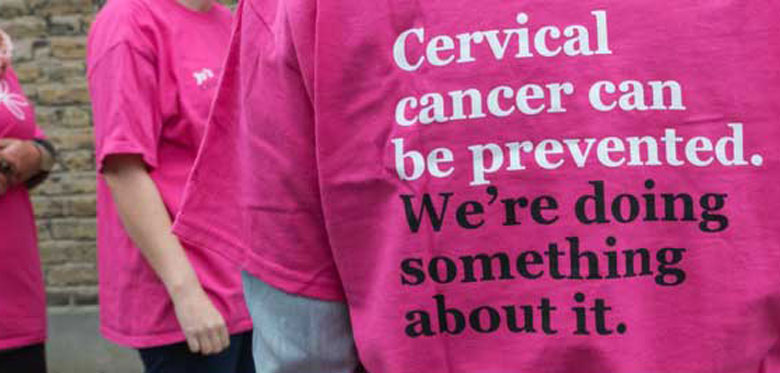Cervical screening (a smear test) is the best protection against cervical cancer. It detects cell changes which, if untreated, could go on to develop into cancer.
About 1 in 20 people will have an abnormal result after a cervical screening - which is approximately 220,000 women every year. Around 3,000 women will be diagnosed with cervical cancer every year in the UK and it is the most common cancer in women aged 35 and under. Jo’s Cervical Cancer Trust are a charity who aim to see cervical cancer prevented and reduce the impact for those affected by cervical abnormalities and cervical cancer.
Their ambition for the year 2022 is:
- A 10% reduction in incidence of cervical cancer across the UK
- 100% of women told about Jo’s Cervical Cancer Trust on their screening invitation
- 66% of women diagnosed with cervical cancer made aware of the charity
- Cervical screening coverage to reach 80%
- HPV vaccination coverage to get to 92%
These targets are challenging but there is a vision of eradication firmly in mind so spread the word to family, friends and women everywhere!
Nine women are diagnosed with cervical cancer in the UK every day and three women will lose their lives to the disease each day. Thanks to cervical screening and the HPV vaccination programme, cervical cancer is now largely preventable – with 75% of cervical cancers being prevented by cervical screening - although uptake of cervical screening is now going down every year.
Cervical cancer is not thought to be hereditary. In 99.7% of cases, cervical cancers are caused by persistent infections with a virus called high-risk human papillomavirus (HPV). HPV is a very common virus transmitted through skin to skin contact in the genital area. Around four out of five sexually active adults (80%) will be infected with some type of HPV in their lives. However, for the majority of women this will not result in cervical cancer. While HPV infection is common, cervical cancer is quite rare.
Following the ‘Jade Goody effect’ in 2009, a report from the Journal of Medical Screening noted that media coverage of celebrity illness triggers a ‘cause and effect’ type situation. Following the tragic death of Jade, aged just 27, this caused a positive effect on the take-up of cervical screenings after the substantive media coverage of Jade Goody's public battle against cervical cancer.
Jade Goody was part of that hard-to-reach age group - women aged 25-35 - and because Jade was a woman who wore her heart on her sleeve, made some very public mistakes and spoke her mind freely, her circumstances created an identifiable event which was far more effective than a national campaign or a fact sheet had ever been before.
At the peak of the ‘Jade Goody effect’ in March 2009, attendance was 70% higher than expected at cervical screening appointments. Increases were seen in both initial and follow-up screening attendances and in colposcopy attendances, and at all ages, though the magnitude was greater for women aged under 50.
However, following an inquiry into the adult health screening programmes in March 2019, the Public Accounts Committee released a report into the management of adult health screening. The cervical screening programme is at a 21-year low for numbers of women attending and there is huge disparity across the country in the numbers of people screened. The report also found that the cervical screening programme is “not fit for purpose” due to the ageing IT system it runs on.
However, cervical cancer can be prevented by making more women aware of the importance of cervical screenings. In order to achieve greater awareness and prevent cervical cancer women should:
- Attend their cervical screening when invited by their health practitioner
- Be aware of the symptoms of cervical cancer and seek medical advice if experiencing any symptoms
- Taking up the HPV vaccination if aged 11-18 when offered
- Talk to family and friends to ensure they know how they can reduce their risk and prevent cancer occurring
- Know where to find support and further information locally which is widely available GP surgeries and local family planning clinics
By Alex Penk, graduate paralegal



Comments